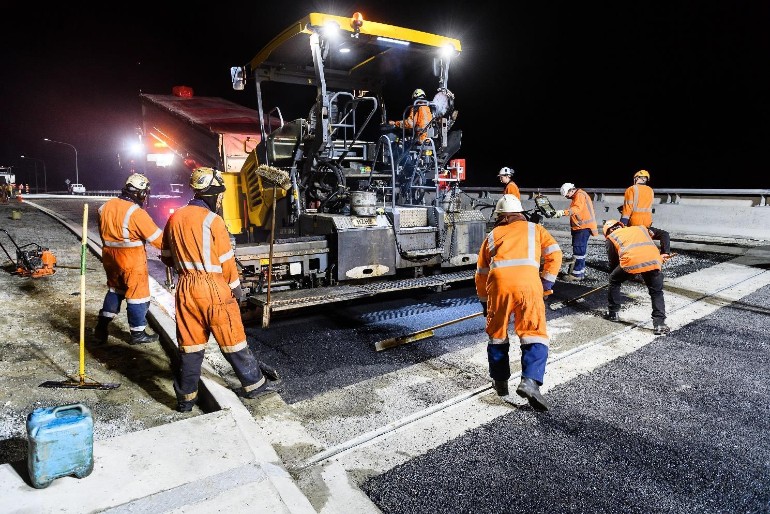Refining NZ says it will stop bitumen production at its Marsden Point refinery from the end of January leaving the industry reliant on imports.
The company will reduce its crude operations by about a third, and cease making bitumen, in the face of a two-year slump in oil refining margins – and an oversupply of regional refining capacity from larger refineries and some supported by their governments. The move will reportedly reduce the refinery’s workforce by 100 jobs to about 300.
Marsden Point usually produces about 100,000-120,000 tonnes of bitumen a year, and supplying an estimated domestic bitumen consumption of around 160,000-170,000 t/yr. Another 50,000 t/yr is imported from refineries in the Asia-Pacific region.
The irony is the country is spending a record amount on infrastructure with new major roading projects that will continue over the summer.
In 2016 the NZTA brought in a new set of national standards for bitumen, M1-A, to cope with heavier road use and bigger trucks. However, its transport manager, Vanessa Browne, reportedly says the agency doesn’t expect there will be any significant negative effect on road building when locally made bitumen stops. The challenge, she says, will be; “around ensuring the quality of imported bitumen and how it will be stored and distributed”, and the agency is updating its specification to allow more flexibility in imported bitumen.
CCNZ technical manager Stacy Goldsworthy, says new storage facilities will be needed and some construction was already underway. In the past the refinery specifically produced a couple of grades of bitumen that meets NZTA specifications, he says, and ‘new rules’ will provide contractors with the flexibility to import bitumen that is produced to international standards. Then they can add whatever it takes to make that material M1-compliant for local use.
On an historic note, the refinery is a tax-payer funded legacy from the 1960s that was expanded in the early 1970s. IT was expanded again on a much bigger scale under Robert Muldoon’s Think Big projects in the 1980s, following global fuel security scares in the late 1970s. This included a 170 kilometre pipeline to south Auckland. At the time, some 5000 workers were involved in the expansion project that was completed in 1986, two years behind schedule and at a final cost of $1.84 billion.
In 1984 the Fourth Labour Government deregulated the fuel sector with the Petroleum Sector Reform Act, and the refinery assets were transferred to the New Zealand Refining Company, a consortium of the five major petrol retailers. These days Refining NZ is 43 percent owned by three fuel company shareholders, but has many other shareholders.
Currently, the refinery supplies about 85 percent of our jet fuel; 67 percent of our diesel; and 58 percent of our petrol consumption. Nearly all the resource used to make these products are imported from Singapore, Australia and South Korea, as a medium-sour blend of crude oil.


Parting words from Jeremy Sole- a final column